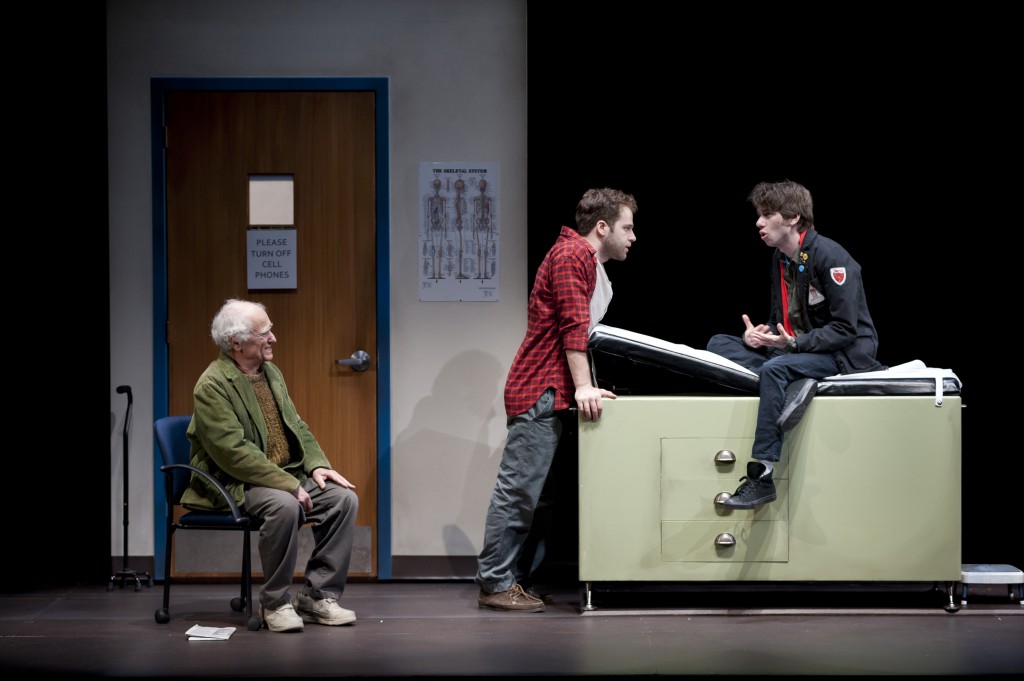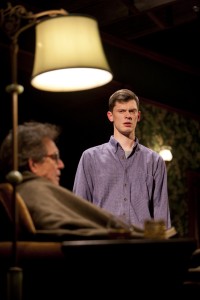
Yusef Bulos (Bill), Kelsey Kurz (Joseph), and Dan McCabe (Charles) in the Huntington Theatre Companyâs SONS OF THE PROPHET by Stephen Karam, directed by Peter DuBois. Playing 4/1/11 â 5/1/11 at the Calderwood Pavilion at the BCA. huntingtontheatre.org. Photo by Paul Marotta.
Sons of the Prophet by Stephen Karam, Huntington Theatre Company, 4/1/11-5/1/11, http://www.huntingtontheatre.org/season/production.aspx?id=8754.
Reviewed by Becca Kidwell
“Happiness does not await us all. One needn’t be a prophet to say that there will be more grief and pain than serenity and money. That is why we must hang on to one another.” Anton Chekov qtd. by Stephen Karam in the program.
If Roundabout Theatre Company and the Huntington Theatre Company takes Stephen Karam’s Sons of the Prophet to Broadway next year, in June 2012 we will likely hear, “and the Tony Award for best play goes to…Sons of the Prophet.” Taking the seemingly sombre subject of pain, Karam has written a comic masterpiece. Add to that the talented cast, direction, and set design and the result is a fast-paced night of laughter and poignancy that should not be missed.
A deer walks into a theatre…well, it doesn’t really walk..and it’s not really a deer… And the audience hears a car crash. Those who came from or have family from the Poconos area of Pennsylvania don’t have to question what has happened; Car accidents with deer are common, but…a deer decoy? We meet Joseph Douaihly, played by Kelsey Kurz, whose father was the victim of the high-school prank that went terribly wrong–and this is only another blow in a devastating year for the Douaihly family. Joseph has physical pain that the doctors cannot diagnose; he works for a lonely, manic woman that uses his need for health insurance as leverage to try to get Joseph to write a memoir based on his distant relation to Kahlil Gibran. When their father does not survive the accident, the Douaihly’s ailing uncle (played by Yusef Bulos) moves in with the Joseph and his brother Charles (played by Dan McCabe). In addition, the boy who pulled the prank might be allowed to play football in his school’s playoff games prior to going to the juvenile detention center for his crime. Hilarious, right? –You have no idea. Continue reading
